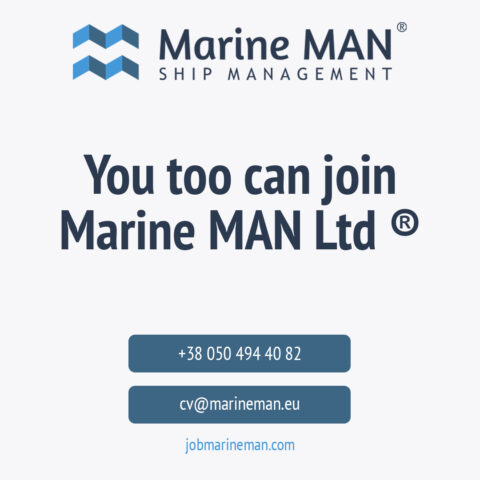Seaman as a profession
 Automatic translation
Automatic translation
People who have connected their lives with the sea, especially those who have dozens and hundreds of flights behind them, often prefer not to use the word “career”, but stop at a more capacious expression “lifestyle”. In this approach to the issue there is a tribute to the romance of distant wanderings, and a lot of truth. The longer the length of service on the ship, the more habitual life away from the coast, and the more difficult it is to return to the overland rhythm. Nevertheless, if you look at the business without pink romantic glasses, the sailor is, first of all, a profession. Let each ship have its own specialization, there is a set of basic requirements and skills that will allow you to start a naval career, grow in it and return home with good earnings.
Where does the sea begin
First of all, a maritime career begins with education and the absence of problems with the law. In order to get a job on a ship without experience, you need to have at least a certificate of completion of training courses. Depending on whether you were trained to work in the engine room or in the deck crew, you can get a job as a minder of the second class (and grow to first), or a sailor. Another way to build a maritime career is the galley. People with cooking skills (and relevant diplomas) are needed there, but you still have to attend water safety courses. The service personnel have a very obvious career ceiling - you can't get older than a cook, but it's a good way to make money on your kitchen skills and, if you're lucky, travel half the world.
To make a career as a merchant marine officer, you need more than a certificate of completion. You will have to enter a university and receive a diploma of the relevant higher education. The good news is that you can get it by correspondence, combining study with the acquisition of practical knowledge of maritime affairs. There are also training centers with a large selection of special modules, the successful completion of which opens up access to officer licenses.
And now about the absence of problems with the law and, no less important, about the reputation. To go to sea for the first time, you need a Seaman's Book. It is commonly referred to as a sailor's passport. To obtain this document, you will need both a certificate from the tax office and a check by law enforcement agencies. In general, the times when they fled from problems to the sea remained in the books. Plus, if you do not plan to get your entire experience in the waters of your native seas, you will have to obtain visas and deal with visa officers of foreign countries, many of whom also arrange thorough checks for applicants. It will be a shame not to get on a profitable flight due to a long-standing bully or an unpaid fine.
Professional growth never ends
So, the cherished certificates and diplomas have been received, the resume has been sent to crewing companies, and even some flights have been performed. Can I stop? Of course no. Firstly, once a diploma is received, it will have to be confirmed every 5 years. Secondly, the world is constantly changing: some specializations lose their relevance, and new ones take their place. A marine professional needs to learn constantly to stay in demand. There are a few things to advise here:
- Improve your English. And, if possible, learn other languages.
- At the first opportunity, take new courses and modules, you can for your current specialization, you can for some new or adjacent to yours.
- Take care of your professional and personal reputation. Good contracts are awarded to people with whom they are willing to work.
- To overcome the difficulties of sea isolation, it is worth making an appointment with a psychologist. Many employers will attribute this fact to the positive aspects of the future employee.
